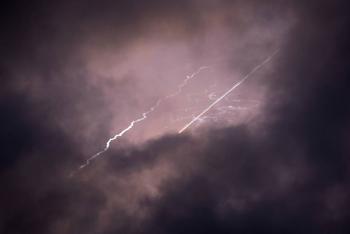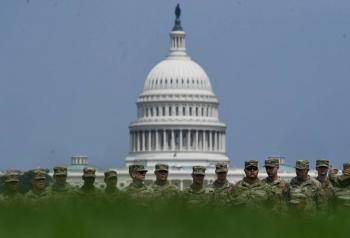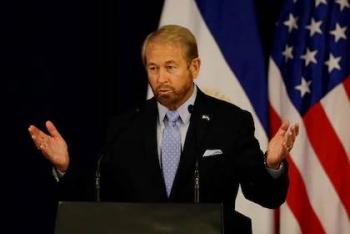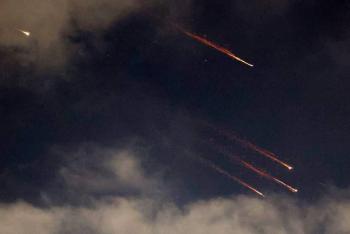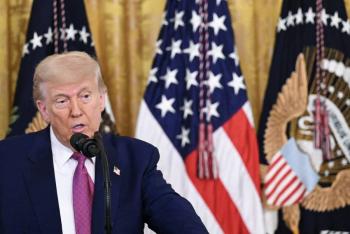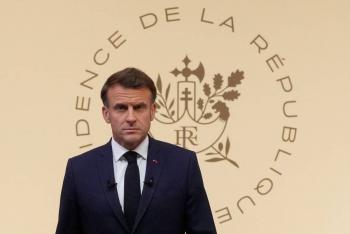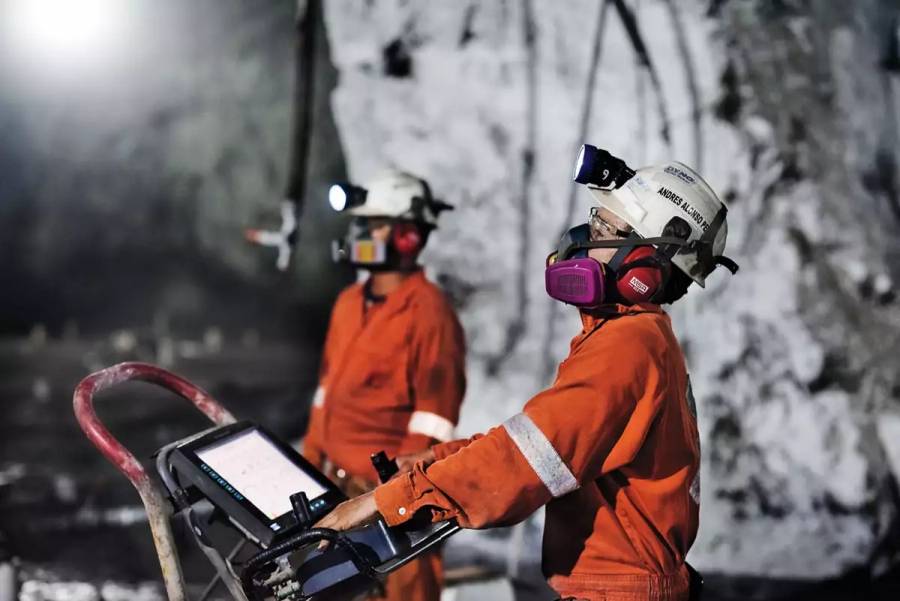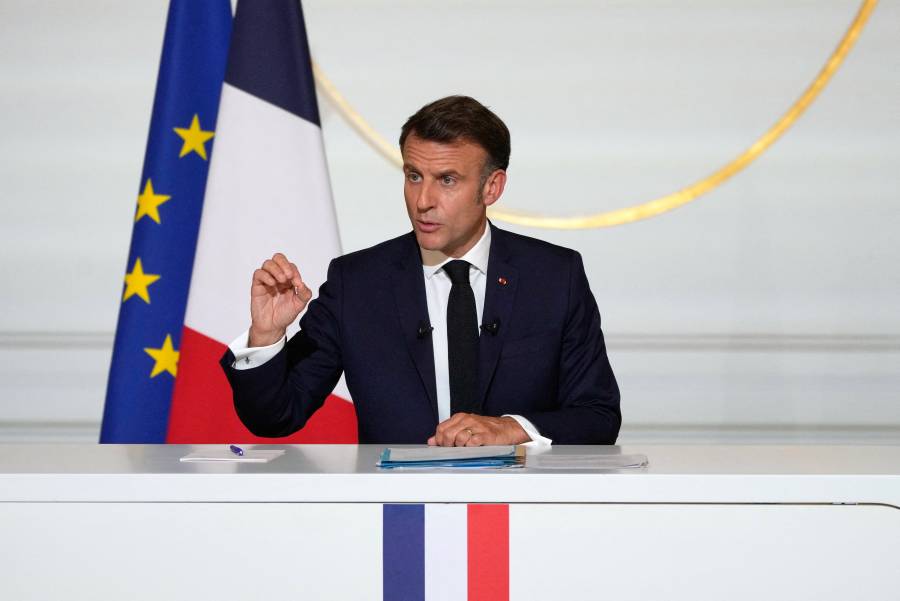 Síguenos @ContraReplicaMX
Síguenos @ContraReplicaMX
El programa nuclear de Irán, la vieja obsesión de Netanyahu
Global
AFP
Israeli Prime Minister Benjamin Netanyahu's nearly 20-year-old threat to strike Iran came true on Friday, as US President Donald Trump warned Tehran of further "brutal" attacks if it refuses to negotiate.
In its largest military action against Iran to date, Israel's strikes hit about 100 targets including nuclear facilities and military command centres, and killed the armed forces' chief, top nuclear scientists and other senior figures.
The strikes came as the United States and Iran were due to meet in Oman Sunday to pick up negotiations towards an agreement on the Islamic republic's nuclear programme.
"We are fairly close to a pretty good agreement," Trump told reporters on Thursday, hours before news broke of the Israeli attacks.
"I don't want them going in, because I think it would blow it", Trump added, speaking of the Israelis.
But on Friday, Trump seemed unbothered by Israel's action, and on his Truth Social platform urged Iran to make a deal.
"There has already been great death and destruction, but there is still time to make this slaughter, with the next already planned attacks being even more brutal, come to an end," he wrote.
- Timing 'makes sense'-
Netanyahu, who has always scorned talks with Iran, paid no heed to Trump's original warning and took advantage of the seismic changes in the Middle East since the start of the war in Gaza in October 2023.
"I don't know what kind of understanding there was between Israel and the US but I doubt Israel would do this if the US told it not to," Menachem Merhavy, an Iran expert at the Hebrew University of Jerusalem, told AFP.
Merhavy said that the timing of the attack "makes sense because Israel has been clipping the wings of Iran for the last year and a half", in actions against Tehran-aligned groups and proxies in the region, many of whom Israel has significantly weakened.
But Netanyahu's obsession with Iran goes back much further than the ongoing Gaza war, sparked by an unprecedented attack by Tehran-backed Palestinian group Hamas.
After Iran's former president Mahmoud Ahmadinejad caused international uproar in 2005 when he called for Israel to be "wiped off the map", Netanyahu -- then an opposition leader following his first term as premier in 1996-1999 -- called Tehran's nuclear programme "a serious threat for the future".
He said at the time Israel "must do everything" to keep Iran from acquiring a nuclear bomb, even if it meant striking the country's nuclear facilities as Israel had in Iraq in 1981.
Iran has consistently denied seeking atomic weapons, but after his return to power in 2009, Netanyahu repeatedly dismissed Tehran's assurances that its nuclear programme was meant for civilian purpose only, and advocated a "military option".
Netanyahu calificó de "error histórico" la aprobación en 2015 por parte del Consejo de Seguridad de la ONU de un acuerdo con las potencias mundiales para levantar las sanciones a cambio de restricciones a las actividades nucleares de Irán.
En 2018, aplaudió la decisión de Trump de retirar a Estados Unidos del acuerdo, descartándolo efectivamente.
La reacción de Irán fue abandonar gradualmente sus compromisos, enriqueciendo uranio hasta niveles cercanos al material apto para armas y en cantidades sin precedentes.
Esto le dio a Netanyahu una justificación para continuar la lucha contra el programa nuclear de Irán.
- 'Remodelar el Medio Oriente' -
Mientras tanto, la agencia de espionaje israelí, el Mossad, trabajaba en secreto para socavar el programa nuclear de Irán.
Desde el comienzo de la guerra de Gaza, Netanyahu ha dicho en varias ocasiones que estaba tratando de "remodelar el Medio Oriente".
A finales de 2024, Israel asestó un duro golpe al llamado "eje de resistencia" de Irán, al paralizar al grupo armado libanés Hezbolá.
La caída del presidente sirio Bashar al-Assad, otro aliado de Irán, ayudó a consolidar el dominio regional de Israel, la única potencia nuclear del Medio Oriente (aunque no declarada).
Pero fue una respuesta israelí a 200 misiles iraníes en octubre de 2024 lo que "cambió el equilibrio de poder" entre los dos enemigos, según declaraciones en ese momento del entonces ministro de Defensa, Yoav Gallant, después de una serie de ataques israelíes dentro de Irán, una rara confrontación directa.
En febrero, Netanyahu le dijo al secretario de Estado de Estados Unidos, Marco Rubio, que con el apoyo de la administración Trump "no tengo ninguna duda de que podemos y terminaremos el trabajo".
Danny Citrinowicz, del Instituto de Estudios de Seguridad Nacional con sede en Tel Aviv, dijo a AFP que Trump probablemente consideraba que Israel "sirve a sus intereses".
"Trump realmente cree que mientras Irán sea más débil, podrá lograr un acuerdo sobre el tema nuclear", afirmó Citrinowicz.
Holly Dagres, experta en Irán del Instituto Washington para la Política del Cercano Oriente, advirtió que "si la administración Trump cree que va a tener una sexta ronda de conversaciones con los iraníes en Omán el domingo, entonces realmente no comprende la república islámica ni su funcionamiento".
mj-reg/lba/jd/ami
© Agencia France-Presse
Envíe un mensaje al numero 55 1140 9052 por WhatsApp con la palabra SUSCRIBIR para recibir las noticias más importantes.
SG/CR
Etiquetas
2025-06-13 - 23:25
2025-06-13 - 23:23
2025-06-13 - 23:21
2025-06-13 - 23:18
2025-06-13 - 19:50
2025-06-13 - 19:26
2025-06-13 - 13:27
2025-06-13 - 13:03
2025-06-13 - 12:15


